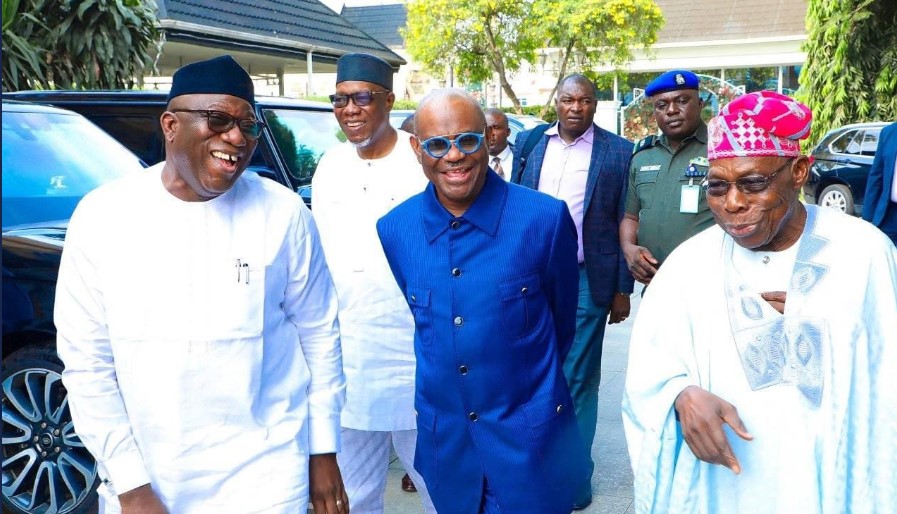Former President of Nigeria, Chief Olusegun Obasanjo, Rivers State Governor, Nyesom Wike, and immediate past Governor of Ekiti State, Kayode Fayemi, have stressed the need to entrench democratic culture and institutions that will sustain development and security in the country.
Speaking at the Port Harcourt International Conference with the theme: “Deepening Democratic Culture and Institutions for Sustainable Development and Security in Nigeria”, yesterday, Obasanjo noted that although Nigeria cannot shy away from the fact that it is not practising true democracy, it has represented and shown tenets of it since 1999.
Obasanjo, who was the keynote speaker at the conference, in his address titled: “Respecting the Principles of Democracy,” said it was not enough to keep recycling activities and debates around liberal democracy, and called on Nigerians to move from democracy to democratisation
He described democratisation as a political and social process that is defined and monitored by the people in their various communities in the larger interest of the nation, adding that the process gives confidence in building a credible and sustainable foundation for the future. He said: “Democracy is possible in Nigeria and we have the capacity to build a culture of democratisation.
“However, we must also appreciate the fact that it does not mean that all of our problem will disappear over night. Rather, it strengthens independent institutions. The democratic system will empower us to effectively and efficiently manage the contradictions, challenges in the system.” He further stated that if the leaders do not retrace their steps, democracy would be entrenched with corruption, noting that the implication will be costly.
“Without retracing our political steps to the right direction, the current process will either not produce the right leader or it will leave so many broken blocks from the path of governance and attract resources and energy away from the task of rebuilding Nigeria and consolidating our democratic practice.
“The result will be democratic quagmire that breeds corruption, insecurity and survival of the richest. The implication and cost of such a scenario to our present and future can be better imagined.”
In his remarks, Wike noted that the success or failure of the 2023 general elections would have substantial implications for the country, saying the success will add value by consolidating and strengthening the roots of democracy in the country.

He added that a failure may increase political polarisation, exacerbate social fault lines and set democracy backwards; and that when government compromises the integrity of elections through election management agencies, it denies citizens their constitutional right to elect the leaders they want and can hold accountable.
According to Wike, political leaders that emerge from the people’s will are more likely to represent the collective interest, foster good governance and advance security and well-being of citizens.
Conversely, when elections lack integrity, he said the leaders that emerge from outside the people’s will, are illegitimate. Such leaders, according to him, will likely be authoritarian, divisive and incapable of effective governance.
Similarly, Chairman of the ceremony, Fayemi, noted that there is much work to be done, saying another type of politics is needed.

